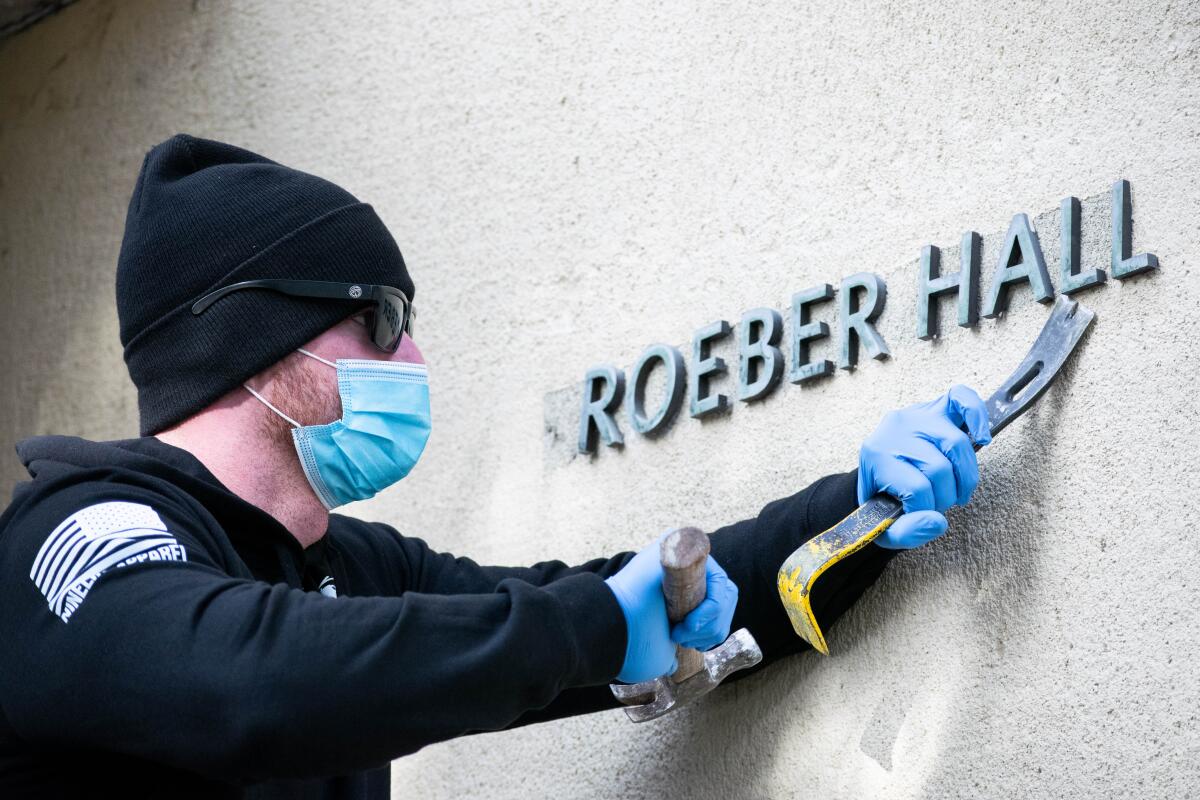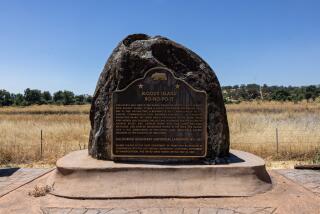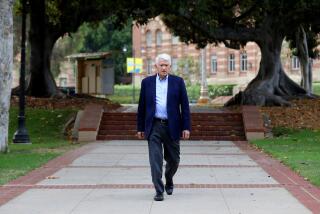UC Berkeley removes Kroeber Hall name, citing namesake’s ‘immoral’ work with Native Americans

A UC Berkeley campus building will be stripped of its name because of the legacy of its namesake, an anthropologist whose work included the “immoral and unethical” collection of Native American remains, the university announced Tuesday.
Kroeber Hall, named after Alfred Louis Kroeber, will be stripped of its name in a year’s time and will temporarily be called the Anthropology and Art Practice Building.
The university’s Building Name Review Committee announced the decision Tuesday after unanimously voting to remove the name last fall. Last year, the university renamed two other buildings over their namesakes’ controversial legacies of promoting racist rhetoric and colonialist ideas.
Kroeber Hall, built in 1959, houses the anthropology department, the Phoebe Hearst Museum of Anthropology and the Worth Ryder Art Gallery.
Phenocia Bauerle, a member of the Apsáalooke tribe and director of Native American student development at the university, said the renaming acknowledges Kroeber’s harm to Native Americans.
“Kroeber wasn’t the sole actor in the California genocide, but he definitely played a part in the process that alienated California Indians, and he created a hierarchy of who were real Indians and who weren’t,” she said in a university statement. “His actions weren’t malicious, but they were flawed. Unnaming acknowledges that there was harm done.”
She said Berkeley’s actions promote societal change, Bauerle said.
UC Berkeley is known as one of the nation’s best public research universities, but one of the worst University of California campuses for Black students. The campus is trying to change that with better recruitment, financial aid and student support.
USC also removed a name of a prominent campus building last year which was named after a eugenics leader and the university’s fifth president.
Chancellor Carol Christ received the proposal last July and supported the committee’s decision. In a letter to UC President Michael Drake, Christ said Kroeber’s views and work stood in opposition to the university’s values of inclusion, and the unnaming recognizes the university’s past “while better supporting the diversity of today’s academic community.”
Several faculty members argued the name removal was incomplete and unjust to Kroeber, arguing that his work salvaged some of the history and culture of Native tribes following the killing of indigenous people.
Kroeber’s work focused on Native communities in California. But he contributed to a collection of remains of Native American ancestors to study, a key reason the committee recommended removing his name. Museums and universities have, for years, displayed human remains and cultural objects of Native American people, robbing them of a ritual and sacred burial process.
Kroeber took a Native American man he named Ishi — who is believed to be the last or among the last members of the Yahi people — to live and “perform” at the university’s museum as a living exhibit for museum visitors in 1911.
Kroeber also declared the Ohlone people, Natives who traced their lineage to the Bay Area, to be culturally extinct, which led to the federal government not recognizing the tribe and leaving the present-day Muwekma Ohlone Tribe politically powerless and without land, the committee said.
Paul Fine, a UC Berkeley professor and chair of the committee, said they received powerful letters from Native American student groups who shared what Kroeber signified to them.
If the university wants to be a welcoming place, Fine said, it must acknowledge that its relationship with Native Americans has been “awful since day one,” Fine said. Renaming is a good first step, but not the end, he said.
“The campus needs to commit resources to righting these wrongs and to think about the legacy of UC’s land and where it came from,” he said.
More to Read
Sign up for Essential California
The most important California stories and recommendations in your inbox every morning.
You may occasionally receive promotional content from the Los Angeles Times.












